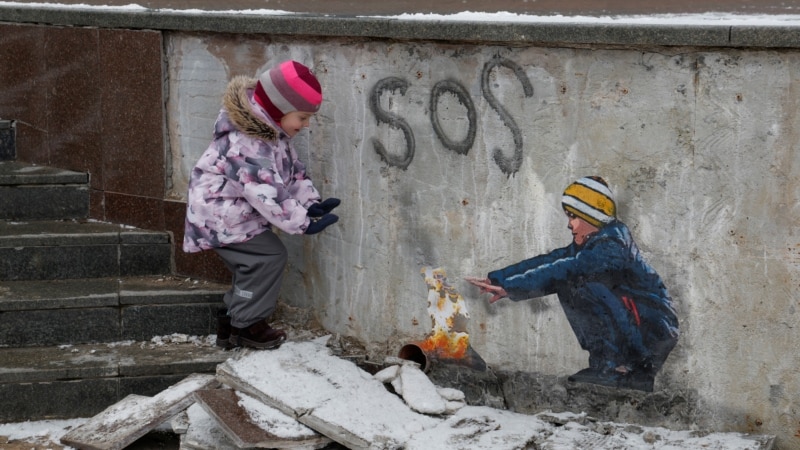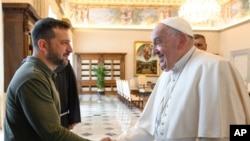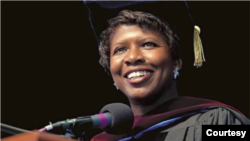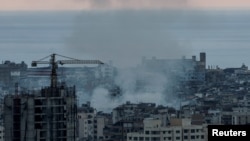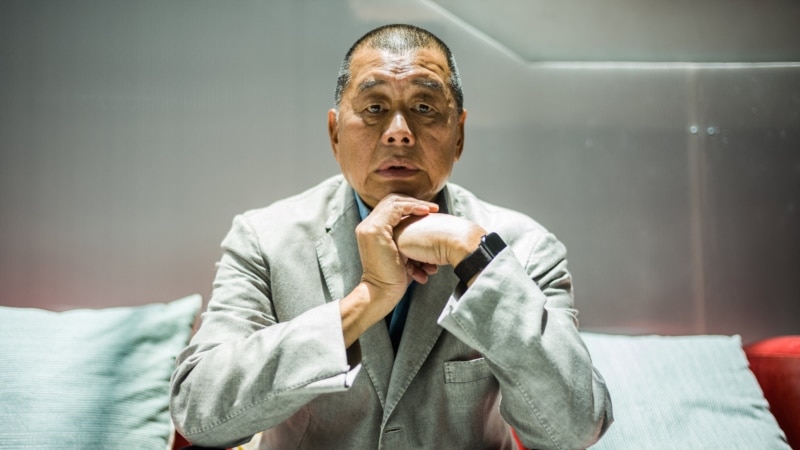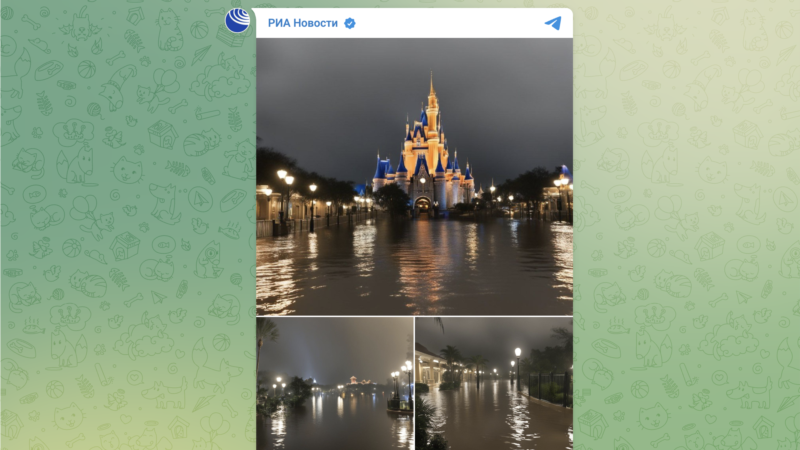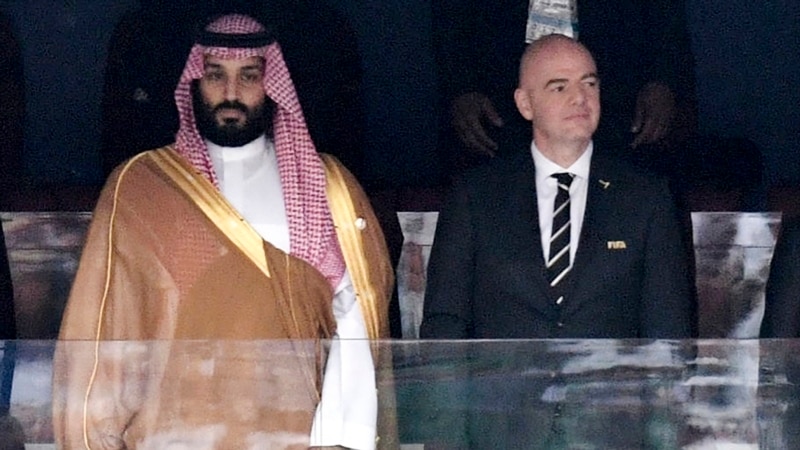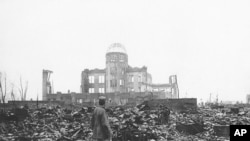For full coverage of the crisis in Ukraine, visit Flashpoint Ukraine.
The latest developments in Russia’s war on Ukraine. All times EST.
8:45 a.m.:
8:30 a.m.: Ukrainian President Volodymyr Zelenskyy met Danish Prime Minister Mette Frederiksen in the southern city of Mykolaiv on Monday, Reuters reported, during a rare visit by a foreign leader to a region close to the war front.
Video footage posted online by Zelenskyy’s office showed the president greeting Frederiksen with a handshake on a snowy street before entering a hospital where they met soldiers wounded in Russia’s invasion.
“It is important for our warriors to be able to undergo not only physical, but also psychological rehabilitation,” Zelenskyy wrote on the Telegram messaging app. “I am grateful to all the medical workers who care about the health of our defenders. I wish them a speedy recovery!”
The two leaders also visited the Mykolaiv Commercial Sea Port, where they saw oil storage tanks hit by Russian enemy missiles and drones, and a heating point equipped with a water purification and distribution unit under a project implemented with Danish assistance.
Zelenskiy thanked Frederiksen for the assistance provided by Denmark, whose defense ministry said earlier this month that the country would donate 19 French-made Caesar howitzer artillery systems to Ukraine.
8:15 a.m.:
8:00 a.m.: Belarus’s armed forces could face widespread desertion from conscripts should the country’s strongman leader, Alyaksandr Lukashenka, order an invasion of Ukraine, a former senior law enforcement official said, according to Radio Free Europe/Radio Liberty.
The prediction by Alyaksandr Azarov, who represents an association of former Belarusian security officials, comes amid conflicting signals about whether Lukashenka may finally decide to commit Belarusian troops to the Ukraine invasion, now in its 12th month.
In the run-up to last February’s invasion, Russia held large-scale military exercises in Belarus. But as the exercises wound down, many of the 30,000 Russian troops stationed there were then used to invade Ukraine, in an unsuccessful push south to seize the Ukrainian capital and topple the government.
But while Lukashenka’s government has allowed Russia’s military wide leeway to use Belarusian territory, Lukashenka has sidestepped pressure from Moscow to actively join the invasion.
7:50 a.m.:
7:35 a.m.: Russia has moved additional forces and equipment to the Kursk region on the border with Ukraine to protect the frontier and ensure security, regional governor Roman Starovoit said on Monday, according to Reuters, which quoted Interfax news agency.
Local authorities say that the region has repeatedly been subjected to Ukrainian shelling since Russia invaded Ukraine almost a year ago.
Some of Russia’s troops entered from the Kursk region, although the areas of northeastern Ukraine that they seized have since been retaken by Kyiv’s forces.
Starovoit told a meeting of the regional government that a solid contingent of personnel from the armed forces, border guards and law enforcement agencies had already been formed in Kursk, but that “it is necessary to provide comprehensive support for the reception, deployment and arrangement of additional forces”.
7:20 a.m.:
7:05 a.m.: Friends and volunteers gathered Sunday at Kyiv’s St Sophia’s Cathedral to say goodbye to Andrew Bagshaw, a New Zealand scientist who was killed in Ukraine with another volunteer while they were trying to evacuate people from a front-line town, The Associated Press reported.
Bagshaw, 48, a dual New Zealand-British citizen, and British volunteer Christopher Parry, 28, went missing this month while heading to the town of Soledar, in the eastern Donetsk region, where heavy fighting was taking place.
Volunteers spoke of their memories of Bagshaw and read tributes from his family.
6:55 a.m.:
6:40 a.m.: Iran and Russia have connected their interbank communication and transfer systems to help boost trade and financial transactions, a senior Iranian official said on Monday. Both Tehran and Moscow are chafing under Western sanctions, Reuters reported.
Since the 2018 reimposition of U.S. sanctions on Iran after Washington ditched Tehran’s 2015 nuclear deal with world powers, the Islamic Republic has been disconnected from the Belgium-based SWIFT financial messaging service, which is a key international banking access point.
Similar limitations have been slapped on some Russian banks since Moscow’s invasion of Ukraine last year.
“Iranian banks no longer need to use SWIFT … with Russian banks, which can be for the opening of Letters of Credit and transfers or warranties,” Deputy Governor of Iran’s Central Bank, Mohsen Karimi, told the semi-official Fars news agency.
6:25 a.m.: The U.N. Office for the Coordination of Humanitarian Affairs says Ukraine is struggling to provide health care services in frontline communities. “There is one doctor left at this location to attend around 1700 people,” Saviano Abreu told CNN in an interview, speaking about a clinic in Siversk, Donetsk region.
6:10 a.m.: Iran summoned Ukraine’s charge d’affaires in Tehran on Monday over his country’s comments on a drone strike on a military factory in the central Iranian province of Isfahan, Reuters reported according to the semi-official Tasnim news agency.
In Ukraine, which accuses Iran of supplying hundreds of drones to Russia to attack civilian targets in Ukrainian cities far from the front, a senior aide to President Volodymyr Zelenskyy linked the incident directly to the war there.
“Explosive night in Iran,” Mykhailo Podolyak tweeted on Sunday. “Did warn you.”
A U.S. official told Reuters that Israel appears to have been behind the attack.
Iran has acknowledged sending drones to Russia but says they were sent before Moscow’s invasion of Ukraine last year. Moscow denies its forces use Iranian drones in Ukraine, although many have been shot down and recovered there.
5:55 a.m.: Agence France-Presse reported that Ukrainian Presidential aide Mykhaylo Podolyak on Monday called the International Olympic Committee (IOC) a “promoter of war” after the sports body said it was considering ways for Russian athletes to compete.
“(The) IOC is a promoter of war, murder and destruction. The IOC watches with pleasure Russia destroying Ukraine and then offers Russia a platform to promote genocide and encourages their further killings. Obviously Russian money that buys Olympic hypocrisy doesn’t have a smell of Ukrainian blood,” Podolyak said on Twitter.
5:25 a.m.: Novak Djokovic said it “hurts him and me” after they decided that his father would not be courtside to see him win the Australian Open on Sunday, following a controversy over a Russian flag, Agence France-Presse reported.
Srdjan Djokovic was absent from the Serbian’s box for his final against Stefanos Tsitsipas at Rod Laver Arena, where Djokovic won a record-equaling 22nd Grand Slam title. Srdjan decided to miss the semi-finals after he faced calls, led by Ukraine, to be banned from the Grand Slam at Melbourne Park.
A video posted to a pro-Russian YouTube account on Thursday showed him posing with a man holding a Russian flag with President Vladimir Putin’s face on it. The video was captioned: “Novak Djokovic’s father makes bold political statement.”
Djokovic subsequently defended his father, saying there had been a “misinterpretation” of the images and no harm was meant. Ukraine’s ambassador to Australia, Vasyl Myroshnychenko, had called for Srdjan Djokovic to be stripped of his stadium pass.
5 a.m.: Reuters reported that a Russian company said it will offer five million roubles ($72,000) in cash to the first soldiers who destroy or capture western-made tanks in Ukraine, after the Kremlin vowed Russian forces would wipe out any Western tanks shipped to Ukraine.
The United States, Germany and several other European countries are lining up to send Kyiv dozens of advanced combat tanks over the next few months to help boost Ukraine’s military capacity as the war approaches the 12-month mark.
The decision has been criticized by the Kremlin as a dangerous escalation, and spokesman Dmitry Peskov said the tanks would “burn” on the frontlines.
Now a Russian company — Fores, a Urals-based firm which makes proppants for the energy industry — is offering cash payments to Russian servicemen who “capture or destroy” German-made Leopard 2 or U.S.-made Abrams tanks.
The company said it will pay five million roubles to the first Russian soldier to destroy one of the tanks, and 500,000 roubles ($7,200) for all subsequent attacks. Echoing language used by Russian officials and pro-war state TV hosts, Fores said NATO was pumping Ukraine with an “unlimited” amount of arms and escalating the conflict. It also said it would pay a 15-million rouble ($215,000) bounty on Western-made fighter jets, should they ever be delivered to Ukraine.
4:25 a.m.: Turkey could evaluate Finland’s NATO bid independently from that of Sweden, Turkish Foreign Minister Mevlut Cavusoglu said on Monday according to Reuters, after protests including the burning of a Koran in Stockholm sparked outrage in Ankara.
“It is a fair approach to set a difference between a problematic country and a less problematic one. We can evaluate (Finnish and Swedish) NATO applications separately if NATO and those countries make a decision about it,” Cavusoglu said.
Sweden and Finland applied last year to join NATO following Russia’s invasion of Ukraine and need all member countries’ approval to join. Turkey and Hungary are yet to ratify the Nordic countries’ membership.
4 a.m.: Turkey will hold a natural gas summit on February 14-15 to bring together gas supplier countries and Europe’s consumer countries, Reuters reported Turkish energy minister Fatih Donmez as saying on Monday.
“We will bring together supplier countries from Middle East, Mediterranean, Caspian and Middle Asia with consumer countries from Europe,” Donmez said.
Speaking at an event, Donmez said the meeting is scheduled to take place in Istanbul.
3:30 a.m.:
3 a.m.: German Chancellor Olaf Scholz sought to drum up support for Ukraine during his first South American tour although differences with his hosts emerged, with Argentine President Alberto Fernandez declaring the region was not planning on sending weapons.
According to Reuters, on his three-day trip, Scholz has sought to stress unity, noting all three countries he is visiting — Argentina, Chile and Brazil — condemned Russia’s invasion at the United Nations General Assembly last year.
The fallout of the war and Western sanctions on Russia such as soaring food and energy prices, however, have hit the region particularly hard, raising questions over the West’s approach.
Fernandez said in a joint news conference with Scholz in Buenos Aires on Saturday that Argentina, like Germany, wanted to help restore peace as soon as possible.
But asked if Argentina would send weapons to Ukraine to fend off Russian troops like Germany and its western allies had, he gave an emphatic no.
“Argentina and Latin America are not planning to send weapons to Ukraine or any other conflict zone,” he said.
Chilean President Gabriel Boric did not refer to the war in his opening statements at a news conference with Scholz in Santiago de Chile on Sunday, focusing instead on economic cooperation, particularly in the commodities sector.
2:30 a.m.: Negotiations on creating a safety zone around Ukraine’s Russia-controlled Zaporizhzhia nuclear plant are tough, and Kyiv appears to be just stalling for time, Reuters reported Monday, citing Russian state-owned news agency RIA Novosti which quoted Moscow’s Deputy Foreign Minister Sergei Ryabkov.
“While consultations with the IAEA are ongoing, it would not be right to make public information about the possible parameters of the ZNPP protection zone. The negotiation process is not progressing easily,” Ryabkov said in an interview with the agency.
“We handed over our proposals to Rafael Grossi, the agency’s director general. As far as we know, Kyiv has not yet given a clear answer to the initiative of the IAEA head. Apparently, it’s just stalling.”
2 a.m.: Senior Chinese diplomat Wang Yi is set to visit Moscow in February, Russia’s Vedomosti newspaper said on Monday, citing two sources.
According to the newspaper, Wang may visit Russian President Vladimir Putin, one of the sources said.
Reuters was not able to immediately verify the report.
1:47 a.m.:
1:30 a.m.: Russia’s deputy foreign minister said in an interview published on state media Monday that it was “quite possible” the New START nuclear arms control treaty with the United States would end after 2026, according to Reuters.
“This is quite a possible scenario,” Deputy Foreign Minister Sergei Ryabkov told the RIA news agency in an interview.
U.S.-Russia talks on resuming inspections under the New START treaty, which expires in February 2026, were called off at the last minute in November 2022. Neither side has agreed on a time frame for new talks.
1 a.m.: Ukraine’s world heavyweight boxing champion Oleksandr Usyk has told Agence France-Presse he has two goals this year — a unification title fight with Tyson Fury and rebuilding the house where his “good friend” was killed by Russian soldiers.
Oleksiy Dzhunkivskyi, a former teammate of Usyk, was shot in the hall of the building in Irpin, a suburb of Kyiv. Usyk has teamed up with the charity United24 and is raising funds to restore the badly damaged five-story house to its former glory.
He has contributed $205,000 towards the overall cost of $330,000.
In a Zoom interview, Usyk told AFP it had been a coincidence he had selected the building to take a look. “I randomly chose this house,” the 36-year-old former cruiserweight world champion said through an interpreter. “When we came to look at it and saw how destroyed the house was, I was a little surprised. In this house there was a boxing gym of my good friend. He and I were in the national team, we went to boxing competitions together. Oleksiy Dzhunkivskyi was shot by Russian soldiers right in this hall.”
When Russia invaded Ukraine last February, Usyk had wanted to take up arms immediately. However, he was dissuaded from doing so as his compatriots felt that in his role as a sports star with global renown, he could add another weapon to the Ukrainian war chest. “The guys from the Armed Forces convinced me that I need to prepare and fight to help my country on the international stage, talk about it and bring opportunities to Ukraine to restore my country,” he said.
12:32 a.m.:
12:01 a.m.: NATO Secretary-General Jens Stoltenberg urged South Korea on Monday to increase military support to Ukraine, citing other countries that have changed their policy of not providing weapons to countries in conflict after Russia’s invasion, Reuters reported.
Stoltenberg is in Seoul, the first stop on a trip that will include Japan and is aimed at strengthening ties with U.S. allies in the face of the war in Ukraine and rising competition with China.
Speaking at the Chey Institute for Advanced Studies in Seoul, he thanked South Korea for its non-lethal aid to Ukraine, but urged it to do more, adding there is an “urgent need” for ammunition. Russia calls the invasion a “special operation.”
“I urge the Republic of Korea to continue and to step up on the specific issue of military support,” he said. “At the end of the day, it’s a decision for you to make, but I’ll say that several NATO allies who have had as a policy to never export weapons to countries in a conflict have changed that policy now.”
In meetings with senior South Korean officials, Stoltenberg argued that events in Europe and North America are interconnected with other regions, and that the alliance wants to help manage global threats by increasing partnerships in Asia.
South Korea has signed major deals providing hundreds of tanks, aircraft and other weapons to NATO member Poland since the war began, but South Korean President Yoon Suk-yeol has said that his country’s law against providing arms to countries in conflicts makes providing weapons to Ukraine difficult.
Stoltenberg noted that countries such as Germany, Sweden, and Norway had similar policies but changed them.
“If we don’t want autocracy and tyranny to win, then they need weapons, that’s the reality,” he said, referring to Ukraine.
The NATO chief said it was “extremely important” that Russia doesn’t win this war, not only for the Ukrainians but also to avoid sending a wrong message to authoritarian leaders, including in Beijing, that they can get what they want by force.
Although China is not NATO’s adversary, it has become “much higher” on NATO’s agenda, Stoltenberg said, citing Beijing’s rising military capabilities and coercive behavior in the region.
In a statement carried by state media on Monday, North Korea called Stoltenberg’s visit a “prelude to confrontation and war as it brings the dark clouds of a ‘new Cold War’ to the Asia-Pacific region.”
Last year South Korea opened its first diplomatic mission to NATO, vowing to deepen cooperation on non-proliferation, cyber defense, counterterrorism, disaster response and other security areas.
The NATO chief’s visit also comes as U.S. Defense Secretary Lloyd Austin was due to arrive in Seoul on Monday for talks with his South Korean counterpart Lee Jong-Sup.
Some information in this report came from Reuters and Agence France-Presse.

